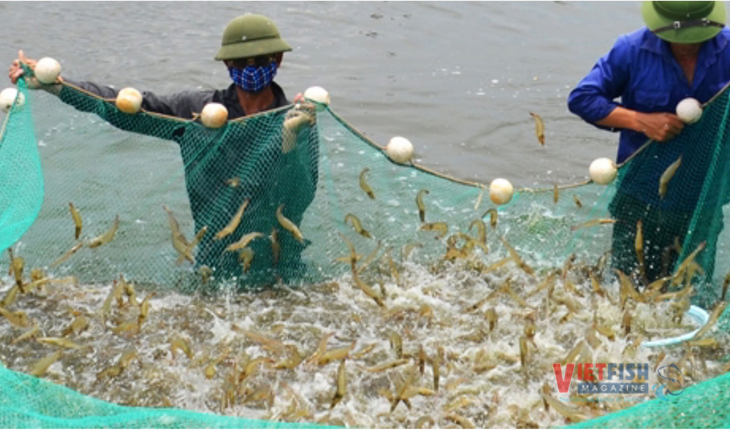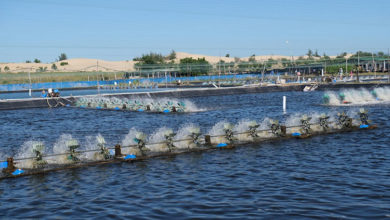New sustainable path for the global food and agriculture industry
The U.S. Soybean Export Council (USSEC) will host the 3rd Global Food and Agriculture Sustainability Symposium (FASS 2024) from June 10 to 12, 2024, in Ho Chi Minh City, focusing on “Guiding the Evolving Landscape: Unified Standards to Enhance Sustainable Impact.”
As the world faces unprecedented challenges, from climate change to economic volatility, it’s urgent to adop sustainable solutions in the food and agriculture sectors. The 3rd Global Food and Agriculture Sustainability Symposium, organized by the U.S. Soybean Export Council (USSEC), aims to bring together industry leaders, innovators, policymakers, and change-makers to chart a coordinated path towards a more sustainable future.

Building on the success of previous USSEC symposiums, which focused on critical topics such as leveraging technology for sustainable food production and efforts to achieve the United Nations’ Sustainable Development Goals by 2030, this year’s symposium will focus on “Guiding the Evolving Landscape: Unified Standards to Enhance Sustainable Impact.” It is a call to action for all stakeholders to share insights and forge partnerships to drive meaningful change.
In her opening remarks, Anne Benjaminson, Deputy Consul General of the U.S. in Ho Chi Minh City, stated that the United States is committing $1.5 billion to global food and agriculture sustainability efforts. The U.S. Department of Agriculture is investing over $3 billion in agricultural projects to support greenhouse gas emission reduction. Recently, the USDA launched a $1.8 million program to develop climate-resilient agriculture in the Mekong Delta, a vital agricultural region in Vietnam heavily impacted by climate change.
Anne Benjaminson also expressed her gratitude to the U.S. Soybean Export Council for their commitment to sustainable practices in the global food and agriculture sectors. “Since the 1980s, American farmers have prioritized the use of energy-efficient materials, reducing greenhouse gas emissions by up to 43%. This demonstrates that the U.S. has become a leading nation with sustainably farmed soybean products worldwide,” she added.
 Anne Benjaminson, Deputy Consul General of the U.S. in Ho Chi Minh City, speaking at the Symposium
Anne Benjaminson, Deputy Consul General of the U.S. in Ho Chi Minh City, speaking at the Symposium
During the Symposium, Ashish Kapahi, CEO of the Asia Economic Forum, noted that the use of freshwater for agriculture has increased by 20% compared to the same period last year, and groundwater is expected to deplete faster than oil. Additionally, 30 – 35% of food produced and 25% of freshwater will be wasted. Moreover, every hour, a farm is sold for urban/non-agricultural development projects worldwide. If this trend continues, there will be a global food shortage of up to 45% by 2100. Simultaneously, global political and social instability is causing severe supply chain disruptions, driving up costs.
An estimated 80% of current deforestation is not only for agricultural production but also for urbanization. The excessive use of fertilizers and chemicals adversely affects soil quality, water, and food safety, impacting human health. Meanwhile, the cost of organic farming is 200% higher than conventional farming. Regarding access to financial resources, there is a capital demand of about $2 trillion, but currently, only 10% is being met. In light of this urgent situation, many large enterprises have launched campaigns to join the race in building a “green” and sustainable agriculture.
 Ashish Kapahi, CEO of the Asia Economic Forum, expresses his desire for businesses to aim for building a “green” agriculture.
Ashish Kapahi, CEO of the Asia Economic Forum, expresses his desire for businesses to aim for building a “green” agriculture.
According to Darian McBain, Chief Sustainability Officer (CSO), NH3 emissions currently account for nearly 2% of global CO2 emissions. Therefore, some companies are pursuing the trend of demonstrating they can produce “green” NH3 or alternatives that do not affect the climate. “We need finances to mitigate and adapt to climate change to have a truly positive impact on the transition to net-zero emissions,” emphasized Ms. Darian McBain.
We have established organizations like the “Green Finance Fund” and multilateral development banks that have mechanisms to support less developed countries struggling with new trends. The conflicts between Russia and Ukraine have impacted global food security, necessitating the proper direction of subsidy flows. This issue will require further discussion until a stable flow of funds is achieved, Ms. Darian McBain added.
 Darian McBain, Chief Sustainability Officer (CSO), expresses confidence in the upcoming directions of the global sustainable agriculture industry.
Darian McBain, Chief Sustainability Officer (CSO), expresses confidence in the upcoming directions of the global sustainable agriculture industry.
According to a report by Kwanpadh Suddhi-Dhamakit, a senior officer from the World Bank, more countries are establishing domestic carbon credit mechanisms, such as Indonesia, Canada, South Africa, and Vietnam. However, middle- and low-income countries face challenges in implementing decarbonization interventions due to financial difficulties. Specifically, these countries have low returns on investment and rely on subsidies to scale up. The interventions are often small and fragmented, and access to financial resources is limited. This is one of the significant challenges in building a global sustainable agriculture industry.
 Kwanpadh Suddhi-Dhamakit, a senior officer from the World Bank, reports on the current carbon credit mechanism.
Kwanpadh Suddhi-Dhamakit, a senior officer from the World Bank, reports on the current carbon credit mechanism.
The 3rd Global Food and Agriculture Sustainability Symposium continues on June 12, with topics related to innovative approaches to enhance sustainability through certification and policy. It delves into discussions on climate change mitigation, adaptation to regional food production, and the crucial role of industry standards in strengthening sustainable efforts.
VFM






